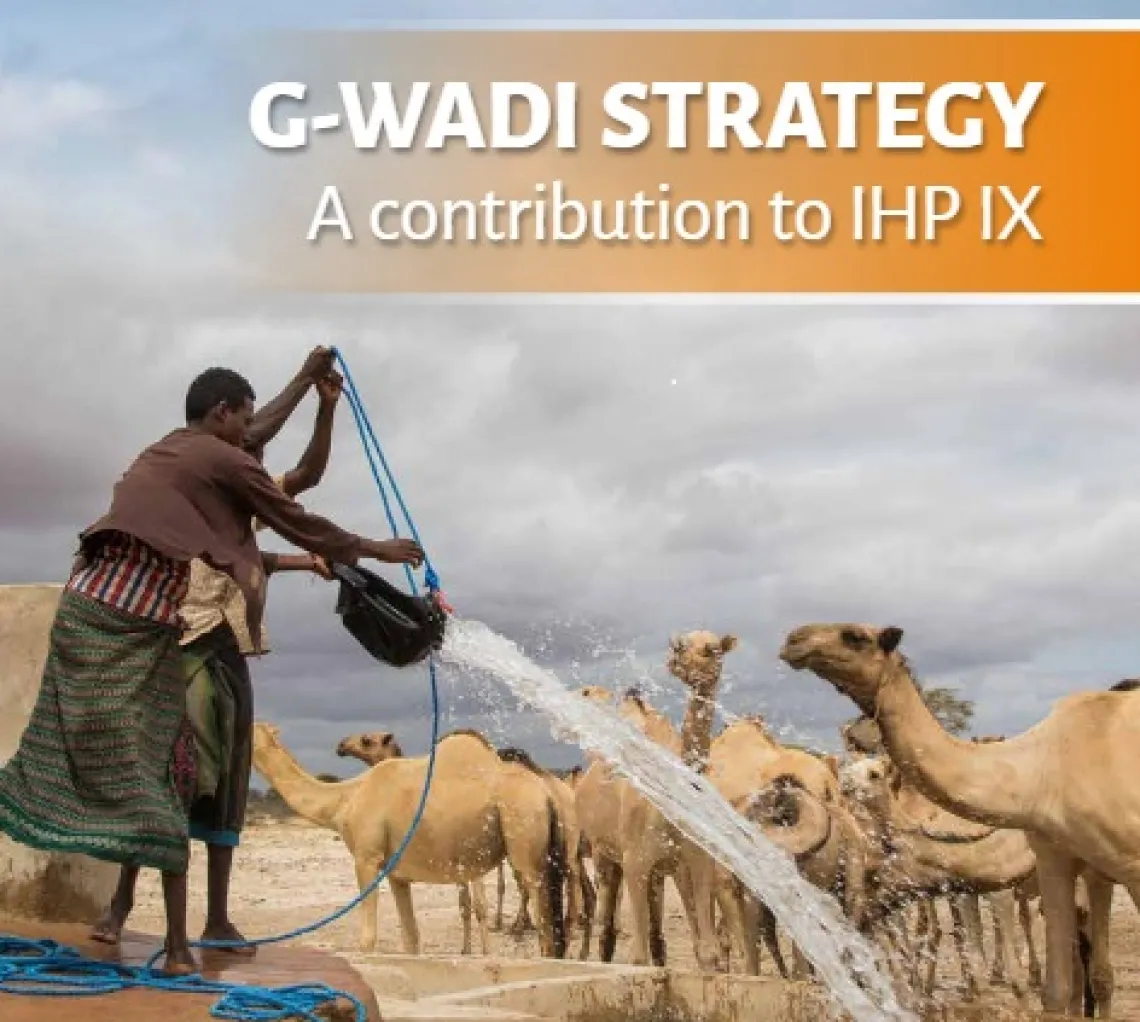G-WADI Publishes Strategy to Contribute to IHP's Current Program

UNESCO's Intergovernmental Hydrological Programme, or IHP, has a number of "Flagship Initiatives", which focus on long-term cross cutting themes related to hydrology issues. Their global aim is to enhance the management of water resources through science-based recommendations, education, and capacity development. G-WADI is one such initiative.
All existing and new IHP Flagship Initiatives have been requested to align their strategies and programs with the ninth phase (2022-2029) of IHP (IHP- IX). The new G-WADI strategy document is part of our effort to achieve that alignment.
The aim of G-WADI is to strengthen the global capacity to manage water resources in arid and semi-arid areas, through a global community of networks, centres, organizations, and individuals.
The overall strategic objective of G-WADI is to enable Member States with dryland regions to adopt and implement innovative, bottom-up tools and methodologies that engage citizens and consider local and indigenous knowledge, to address water-related challenges including climate change impacts.
This overall objective is also aligned with the priorities of the current IHP-IX phase, as well as the overall UNESCO-IHP mission, which concern mobilizing scientific and policy-relevant expertise, knowledge and tools for informed decisions in addressing water challenges, as well as strengthening transdisciplinary water research by supporting research on methods for stakeholder involvement and knowledge integration.
To reach the overall objective of the Programme, four specific objectives were identified:
1) To support Member States to use G-WADI tools and methodologies to address water management in drylands, particularly focusing on water-related hazards, such as floods and drought, through capacity building;
2) To support Member States to implement bottom-up methodologies and tools for climate-informed decision making under uncertainty through capacity building and development of case studies;
3) To mainstream citizen science methodologies and tools in dryland hydrology, as well as implement case studies that include indigenous and local knowledge; and
4) To enhance and implement alternative techniques for water management through research and capacity development on water harvesting, Managed Aquifer Recharge (MAR), and the application of isotope hydrology.
